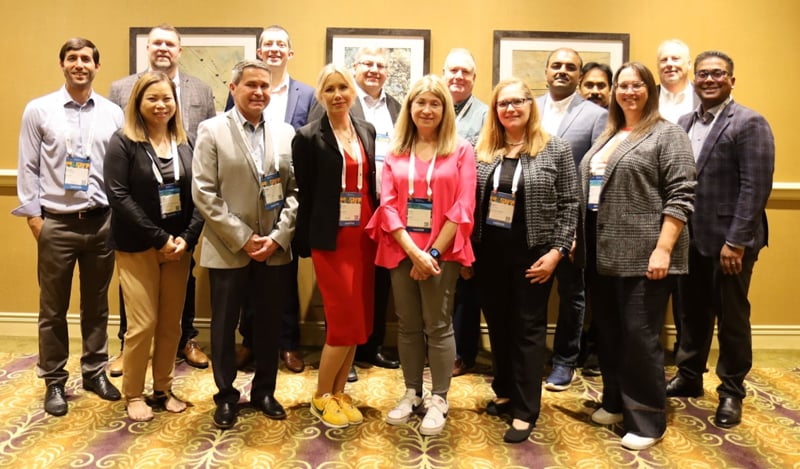
The insurance industry is excited about the potential of Generative AI (GenAI) and Large Language Models (LLMs) across the entire policy and claims lifecycle. Many use-cases lend themselves well to the problem patterns that can be solved by these emerging technologies.
Workers' compensation insurance is an ideal application for GenAI due to its inherent complexity. This complexity comes from several factors: (a) there are a lot of rules and regulations to follow; (b) many different stakeholders are involved, like doctors and lawyers, each needing different information; (c) claims often stay open for weeks, months, or even years as the injured worker recovers and prepares for the return to work; (d) there are usually many long documents to review and understand, like medical records and detailed notes about claims; and (e) the industry is losing high volumes of experienced talent as a generation of seasoned case managers retires.
During this year's Connections conference, Guidewire hosted a meeting of our workers’ compensation Business Advisory Council, where the main topic was, “Leveraging Generative AI to Transform workers’ compensation.” Fifteen leaders from workers’ compensation carriers discussed their ideas, questions, and challenges related to GenAI, including several common use-cases:
-
On the policy side, GenAI can make an impact in business classifications and premium audits. The process of correctly calculating workers’ compensation premiums hinges on selecting the appropriate class codes, a task that often challenges brokers and underwriters. GenAI can help navigate these codes and validate the information against publicly available data to ensure accuracy, thereby reducing errors and improving efficiency.
-
In claims management, GenAI has the potential to revolutionize how case managers handle information. Claims in workers’ compensation can comprise dozens of documents that make it difficult for case managers to quickly gather the necessary insights. GenAI may provide solutions that summarize key information and even allow case managers to interact with a digital “co-pilot” to discuss the details of a claim. This not only speeds up the process but also enhances the case manager's ability to make informed decisions.
-
Determining the next best actions for claims is another area where GenAI is poised to help, especially as the industry faces a talent shortage due to experienced case managers retiring. By capturing and simulating expert decision-making, GenAI can help train new case managers more efficiently, enabling them to become productive faster.
-
Fraud detection remains a significant concern across the insurance industry, and workers’ compensation is no exception. GenAI can identify inconsistencies in claims, alerting case managers to potential fraud and enabling more thorough investigations.
While the scope for GenAI in workers’ compensation insurance is vast and exciting, the field is still in its early stages. To fully leverage this new technology, it is crucial for carriers to prepare by investing in necessary foundations such as data architecture, governance, and operations. In addition, it is critical to start upskilling the workforce and conducting smaller-scale pilots to familiarize employees and the business with the capabilities of new technology.
Guidewire is continually exploring opportunities to collaborate with customers on strategic initiatives that help advance the P&C insurance industry, such as GenAI. Feel free to email info@guidewire.com with inquiries or suggestions on how we might partner on such initiatives in the future.
